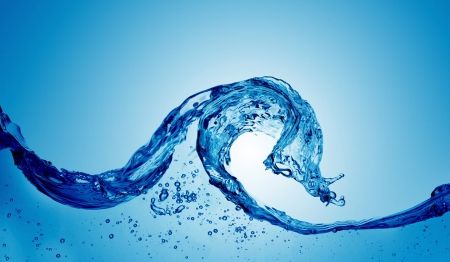潘基文2015年世界水日致辞
爱思英语编者按:世界水日宗旨是唤起公众的节水意识,加强水资源保护。为满足人们日常生活、商业和农业对水资源的需求,联合国长期以来致力于解决因水资源需求上升而引起的全球性水危机。1977年召开的“联合国水事会议”,向全世界发出严重警告:水不久将成为一个深刻的社会危机,石油危机之后的下一个危机便是水。1993年1月18日,第四十七届联合国大会作出决议,确定每年的3月22日为“世界水日”。

Message on World Water Day
世界水日致辞
22 March 2015
2015年3月22日
This year, as the UN prepares to adopt a new post-2015 sustainable development agenda in September, World Water Day highlights the essential and interconnected role of water. We rely on water for public health and equitable progress, it is essential for food and energy security, and it underpins the functioning of industries.
今年,由于联合国将在9月通过一项新的2015年后可持续发展议程,世界水日便能突出表明水所发挥的重要和相互关联的作用。我们需要水来保障公共卫生和公平发展,水对于粮食和能源安全至关重要,而且水是各个行业运作的基础。
The onset of climate change, growing demand on finite water resources from agriculture, industry and cities, and increasing pollution in many areas are hastening a water crisis that can only be addressed by cross-sectoral, holistic planning and policies – internationally, regionally and globally.
气候变化的出现,农业、工业和城市对有限的水资源日益增长的需求,以及许多领域污染的扩大,均加速了水危机,这种危机只能通过国际、区域和全球跨部门的综合规划和政策才能解决。
Among the most urgent issues are access to safe drinking water and sanitation. Despite progress under the Millennium Development Goals, adopted in 2000, some 750 million people – more than one in ten of the world’s population – remain without access to an improved water supply. Women and children, in particular, are affected by this lack, as not only is their health compromised, but considerable hours are wasted in the unproductive – and sometimes dangerous – business of collecting water.
获得安全饮用水和卫生设施是最需要解决的问题之一。尽管解决这方面问题在2000年通过的千年发展目标中已取得进展,约7.5亿人——换句话说,世界人口每10个人中有一个人以上——仍然无法获得经改善的水供应。妇女和儿童特别受到缺水的影响,她们不仅健康受到损害,而且取水这项非生产性、有时是危险的事情占去了她们相当多的时间。
The statistics on sanitation are even less encouraging. Some 2.5 billion people still live without improved sanitation, and a billion people practice open defecation, making sanitation the least successful area of the MDGs. We cannot achieve a world of dignity, health and prosperity for all until we address this urgent need.
卫生方面的统计数据就更加令人沮丧。大约25亿人仍然得不到经改善的卫生设施,有10亿人露天排便,使卫生成为千年发展目标中最不成功的领域。除非解决这一迫切需要的问题,我们无法实现人人享有尊严、健康和繁荣的世界。
Our sustainable future is also jeopardized by climate change, which is why United Nations Member States are working hard towards a meaningful, universal climate agreement this December in Paris. Over the coming years, greenhouse gas emissions will have to significantly decline in order to avert the worst impacts of climate change, which include changed weather patterns and the threat of water scarcity in large parts of the world.
我们的可持续未来也受到气候变化的影响,这便是联合国会员国正致力于今年12月在巴黎达成一项有意义和普遍的气候协议的原因。在今后几年里,温室气体排放必须大大减少,才能避免气候变化造成最严重的影响,这种影响包括世界许多地区的天气模式发生变化,以及水资源短缺造成的威胁。
To address the many challenges related to water, we must work in a spirit of urgent cooperation, open to new ideas and innovation, and prepared to share the solutions that we all need for a sustainable future. If we do so, we can end poverty, promote global prosperity and well-being, protect the environment and withstand the threat of climate change.
为了应对与水有关的许多挑战,我们必须本着立即合作的精神,接受新的想法和创新,并愿意分享我们都需要的解决办法,以实现一个可持续的未来。只有这样,我们才能结束贫穷,促进全球繁荣和福祉,保护环境和抵御气候变化的威胁。